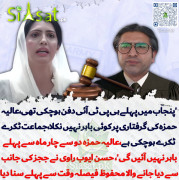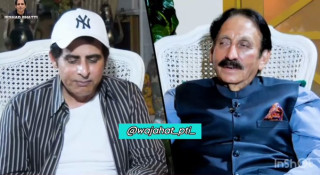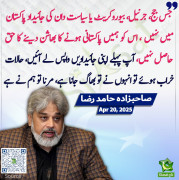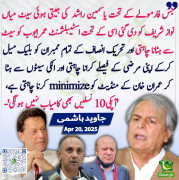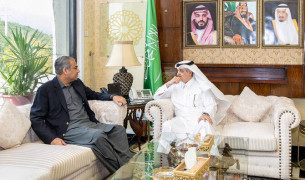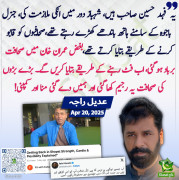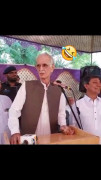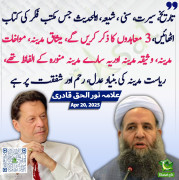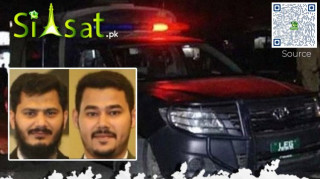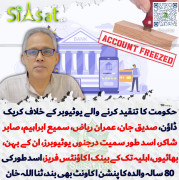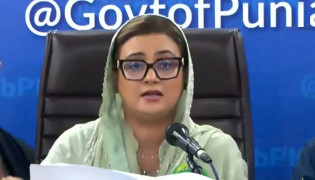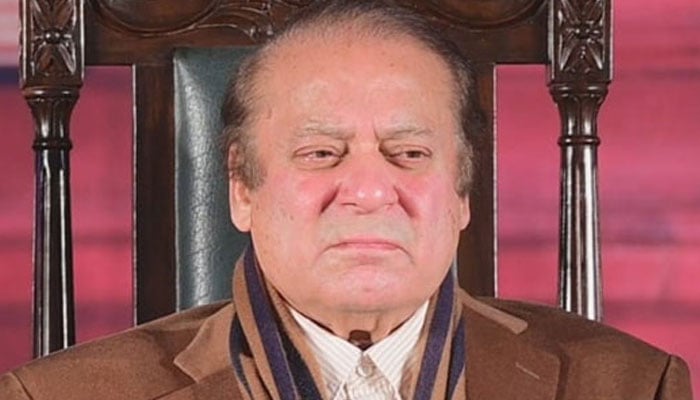News_Icon
Chief Minister (5k+ posts)

How Imran Khan’s Poll Demand Sparked a New Pakistan Crisis
By: Khalid Qayum
Former Pakistan premier Imran Khan’s bid for snap elections has evolved into a constitutional crisis, with the government pushing back against a Supreme Court order to carry out two provincial polls, raising concerns over the future of the democratic process.
At the center of this is Chief Justice Umar Ata Bandial, who set election dates for the Punjab and Khyber Pakhtunkhwa provinces after Khan and his allies used their majorities to dissolve the assemblies and build momentum for an early national vote.
Government lawmakers then moved to pass a bill to clip the top judge’s powers on taking “suo-moto” notice — which means carrying out action on what the justice deems is in the interest of the public. The bill is now in limbo after it was suspended last week by an eight-member top court panel, a week before it was expected to become law. That’s set the stage for a showdown between Bandial and the government, with a formal hearing due to begin on May 2 on whether the bill is constitutional.
In another twist, Justice Bandial ordered the nation’s central bank to provide funds to the Election Commission to carry out the polls, after the government refused to make the finances available. Ministers have publicly criticized the court’s decision and said nationwide polls will be held in October. It may now only be a matter of time before the government is taken to court by Khan, or his allies.
“The government may be charged with contempt of court if it disobeys the orders,” said Naeem Ahmed, an international relations professor at the University of Karachi. “The country may be seeing an escalated constitutional crisis.”
The constitutional crisis adds to a raft of problems that have plagued the South Asian nation since Khan was ousted from power a year ago by Prime Minister Shehbaz Sharif and an alliance of 13 political parties. They have cited Khan’s economic and foreign policy mismanagement as key reasons for his ouster.
Sharif has resisted holding early elections, saying the country needs to focus on reviving an International Monetary Fund bailout package and avoiding a default. A recent opinion poll showed he and his party leaders are becoming increasingly unpopular as they push tough reforms to clinch the funds.
Khan, on the other hand, has enjoyed widespread support and draws tens of thousands to his rallies. The former cricket star wants early elections to prove his popularity, as he dodges police arrests for court cases involving terrorism and corruption charges that he says are politically motivated.
He’s also survived an alleged assassination attempt that’s left him wounded in the leg.
What’s the election dispute?
Khan’s Pakistan Tehreek-e-Insaf party and allies used their combined majorities in Punjab and Khyber-Pakhtunkhwa to dissolve the legislatures in January, in an attempt to push for elections. Under the constitution, elections must be held within 90 days of a dissolution.As the government appeared to delay the process, Chief Justice Umar Ata Bandial intervened to hear the case himself along with a bench of judges. The five-member panel of justices directed President Arif Alvi, a member of Khan’s party, to announce a polling date which was set for April 9 for both provinces. Three justices were in favor of holding polls, while two opposed.
The government said there’s no money for local elections given the economic crisis and it was more important to focus on securing the IMF loan. The Election Commission of Pakistan postponed the polls to Oct. 8 citing funding shortages and rising terrorism.
What is the Supreme Court’s position on this?
The Supreme Court has been divided. Khan appealed the poll postponement and a nine-member bench was established to consider the matter. Two justices recused themselves, while four others dismissed the case.Bandial, along with two other judges, ruled that polls should be carried out in Punjab on May 14. The government had demanded that a larger panel of justices hear the appeal, which Bandial declined to do.
The Shehbaz administration was ordered to provide 21 billion rupees ($72 million) to the election body by April 10, in order to carry out the polls. The government rejected the verdict saying it’s a minority view and referred the matter to parliament. A separate appeal on elections in Khyber Pakhtunkhwa is being heard at a provincial court.
What’s next for the government?
It depends on a parliament that is controlled by Sharif’s coalition parties. Government lawmakers have passed a non-binding motion barring Sharif from releasing funds to the electoral watchdog, and from carrying out the order to hold local elections next month.At the same time, based on the Supreme Court orders, the Sharif administration introduced a money bill seeking parliament’s approval on allocating funds for elections. But it was rejected by parliament’s standing committees.
Government officials such as Interior Minister Rana Sanaullah have hinted at imposing emergency laws. The government can invoke such laws, citing rising terrorism or an economic crisis as a means to justify delaying elections. The national vote has been delayed before, as recently as 2007, when then-Prime Minister Benazir Bhutto was assassinated.
What options are there for Imran Khan?
Khan and his party are putting pressure on the Election Commission to follow the court order and could well take the government to court. He will also likely hold more protests and rallies that could erupt into violence, especially after the fasting period ends later this month.With national elections on the horizon, likely to be held in October, Khan appears to be trying to mend ties with the powerful military establishment, which has ruled the country for about half the time since independence in 1947. He is also making attempts to improve his relationship with the US. He fell out with both after accusing them of collaborating to oust him from power - an allegation they have denied.
- Featured Thumbs
- https://i.ibb.co/T1cQ7pg/1.jpg
Last edited by a moderator:

